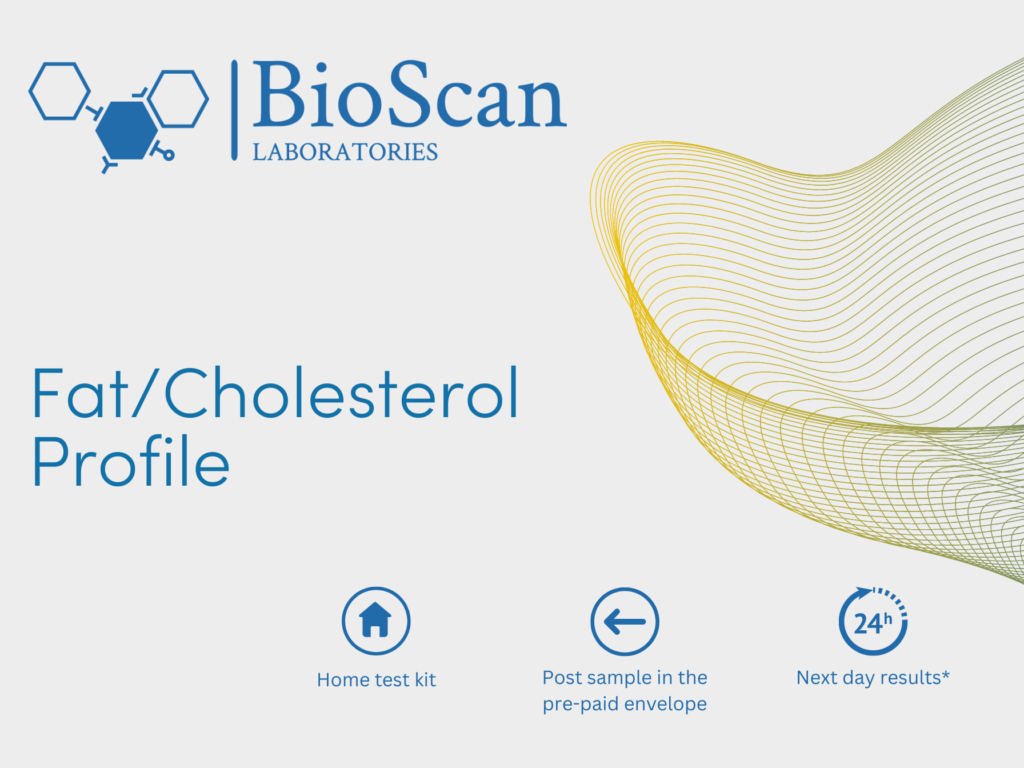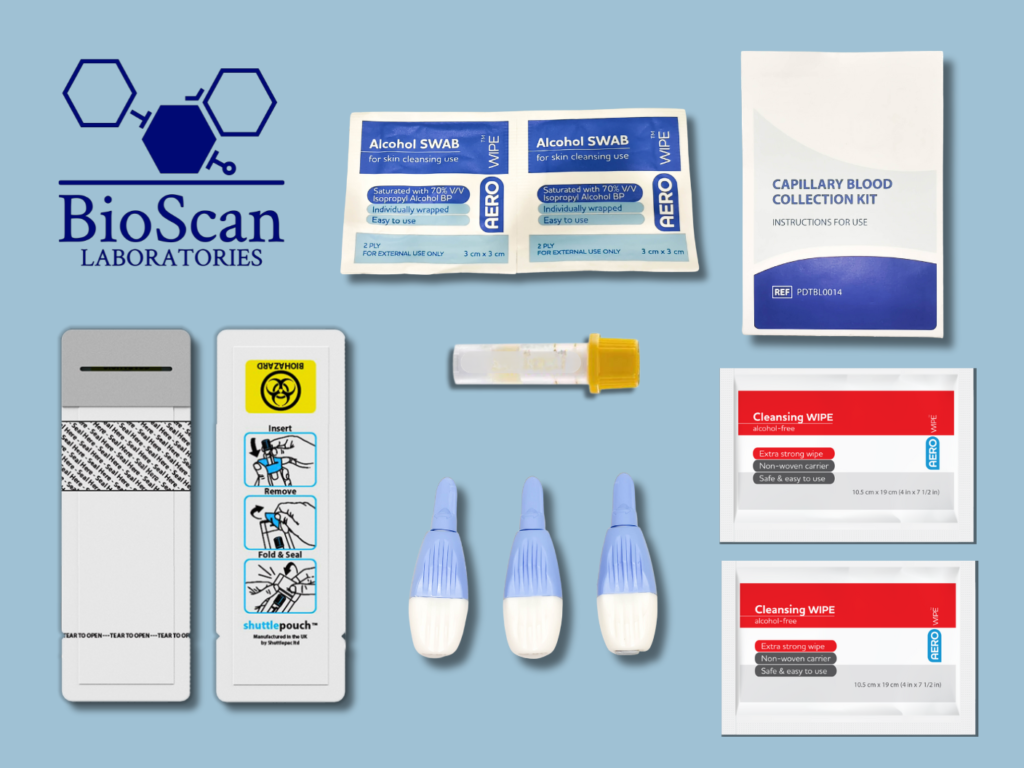Fat/Cholesterol
Profile
£39.00
The Fat/Cholesterol profile is usually performed as part of a routine check-up or to monitor treatment for conditions like high cholesterol or heart disease. Depending on your individual health status and risk factors, your healthcare provider may recommend regular lipid profile testing to help manage your overall health.
Home Test Kit
£39.00
Home Test Kit
£39.00
Lipids Function
This test checks your levels of triglycerides, which are a type of fat found in your blood. Triglycerides can be elevated if you eat too much fat, sugar or alcohol.
This test also checks your cholesterol levels. Cholesterol is a type of fat that your body needs to function properly. High levels of cholesterol in your blood can increase your risk of heart disease.
This test measures the amount of “good” cholesterol in your blood, it helps remove excess cholesterol from the blood. Higher levels are generally better for your heart health.
This test measures the amount of “bad” cholesterol in your blood, it can build up in the walls of arteries and lead to heart disease. Lower levels are generally better for your heart health.
This test measures the total amount of cholesterol in your blood, minus the “good” cholesterol. Lower levels are generally better for your heart health
How does it work?
Checking what’s happening inside your body is quick and easy — do it from the comfort of your home. We help you understand your health in 4 simple steps:

Pick your blood test
We have a range of suitable tests to cater for your needs

Take your sample
Your blood test kit arrives within 1-2 days, along with instructions on how to take your sample.

Return your sample
Post it back to one of our labs for free.

Receive your results
Our efficient dedicate laboratory will guarantee next day results.
FAQs
Do I need to fast for the Standard Blood Test?
How is this test different from the Premier Health Profile?
Why is a Standard Blood Test done?
What do I need to open the files ?
Contrary to popular belief, Lorem Ipsum is not simply random text. It has roots in a piece of classical Latin literature from 45 BC, making it over 2000 years old. Richard McClintock, a Latin professor at Hampden-Sydney College in Virginia, looked up one of the more obscure Latin words



